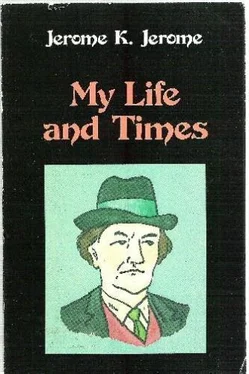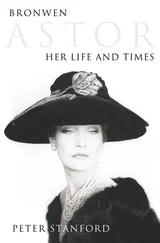I ask my American friends—and I have many, I know—to forgive me. Who am I to lecture the American nation?—I feel, myself, the absurdity of it—the impertinence. My plea is that I am growing old. And it comes to me that before long I may be called upon to stand before the Judge of all the earth, and to make answer, concerning the things that I have done and—perhaps of even more importance—the things that I have left undone. The thought I am about to set down keeps ringing in my brain. It will not go away. I am afraid any longer to keep silence. There are many of power and authority who could have spoken it better. I would it had not been left to me. If it make men angry, I am sorry.
The treatment of the negro in America calls to Heaven for redress. I have sat with men who, amid vile jokes and laughter, told of “Buck Niggers” being slowly roasted alive; told how they screamed and writhed and prayed; how their eyes rolled inward as the flames crept up till nothing could be seen but two white balls. They burn mere boys alive and sometimes women. These things are organized by the town's “leading citizens.” Well-dressed women crowd to the show, children are lifted up upon their fathers' shoulders. The Law, represented by grinning policemen, stands idly by. Preachers from their pulpits glorify these things, and tell their congregation that God approves. The Southern press roars its encouragement. Hangings, shootings would be terrible enough. These burnings; these slow grillings of living men, chained down to iron bedsteads; these tearings of live, quivering flesh with red-hot pinchers can be done only to glut some hideous lust of cruelty. The excuse generally given is an insult to human intelligence. Even if true, it would be no excuse. In the majority of cases, it is not even pretended. The history of the Spanish Inquisition unrolls no greater shame upon the human race. The Auto-da-fé at least, was not planned for the purpose of amusing a mob. In the face of this gigantic horror, the lesser sufferings of the negro race in America may look insignificant. But there must be tens of thousands of educated, cultured men and women cursed with the touch of the tar-brush to whom life must be one long tragedy. Shunned, hated, despised, they have not the rights of a dog. From no white man dare they even defend the honour of their women. I have seen them waiting at the ticket offices, the gibe and butt of the crowd, not venturing to approach till the last white man was served. I have known a woman in the pains of childbirth made to travel in the cattle wagon. For no injury at the hands of any white man is there any redress. American justice is not colour blind. Will the wrong never end?
One of my earliest recollections is of myself seated on a shiny chair from which I had difficulty in not slipping, listening to my father and mother and a large, smiling gentleman talking about Peace. There were to be no more wars. It had all been settled at a place called Paree. The large gentleman said Paris. But my mother explained to me, afterwards, that it meant the same. My father and my mother, so I gathered, had seen a gentleman named Napoleon, and had fixed it up. The large gentleman said, with a smile, that it didn't look much like it, just at present. But my father waved his hand. Nothing could be done all at once. One prepared the ground, so to speak.
“The young men, now coming forward,” said my mother, “they will see to it.”
I remember feeling a little sad at the thought that there would be no more war—that, coming too late into the world, I had missed it. My mother sought to comfort me by talking about the heavenly warfare which was still to be had for the asking. But, in my secret heart, it seemed to me a poor substitute.
With the coming of the Alabama claim things looked brighter. My father, then President of the Poplar branch of the International Peace Association, shook his head over America's preposterous demands. There were limits even to England's love of Peace.
Later on, we did have a sort of war. Nothing very satisfying: one had to make the best of it: against a King Theodore, I think, a sort of a nigger. I know he made an excellent Guy Fawkes. Also he did atrocities, I remember.
At this period France was “The Enemy.” We boys always shouted “Froggy” whenever we saw anyone who looked like a foreigner. Crécy and Poitiers were our favourite battles. The “King of Prussia,” in a three-cornered hat and a bob-tailed wig, swung and creaked in front of many a public-house.
I was at school when France declared war against Prussia in 1870. Our poor old French Master had a bad time of it. England, with the exception of a few cranks, was pro-German. But when it was all over: France laid low, and the fear of her removed: our English instinct to sympathize always with the underdog—not a bad trait in us—asserted itself; and a new Enemy had to be found.
We fixed on Russia.
Russia had designs on India. The Afghan War was her doing. I was an actor at the time. We put on a piece called “The Khyber Pass”—at Ashley's, if I remember rightly. I played a mule. It was before the Griffith Brothers introduced their famous donkey. I believe, if I had been given a free hand, I could have made the little beast amusing. But our stage-manager said he didn't want any of my damned clowning. It had to be a real mule, the pet of the regiment. At the end, I stood on my hind legs, and waved the British flag. Lord Roberts patted my head, and the audience took the roof off, nearly.
I was down on my luck when the Russo-Turkish War broke out. There were hopes at first that we might be drawn into it. I came near to taking the Queen's shilling. I had slept at a doss-house the night before, and had had no breakfast. A sergeant of Lancers stopped me in Trafalgar Square. He put his hands on my shoulders and punched my chest.
“You're not the first of your family that's been a soldier,” he said. “You'll like it.”
It was a taking uniform: blue and silver with high Hession boots. The advantages of making soldiers look like mud had not then been discovered.
“I'm meeting a man at the Bodega,” I said. “If he isn't there I'll come straight back.”
He was there; though I hadn't expected him. He took me with him to a Coroner's inquest, and found a place for me at the reporter's table. So, instead, I became a journalist.
The music-hall was the barometer of public opinion in those days. Politicians and even Cabinet Ministers would often slip in for an hour. MacDermott was our leading Lion Comique. One night he sang a new song: “We don't want to fight, but by Jingo if we do.” Whatever happened, the Russians should not have Con-stan-ti-no-ple, the “no” indefinitely prolonged. It made a furore. By the end of the week, half London was singing it. Also it added the word Jingo to the English language.
Peace meetings in Hyde Park were broken up, the more fortunate speakers getting off with a ducking in the Serpentine. The Peacemonger would seem to be always with us. In peace-time we shower palm leaves upon him. In war-time we hand him over to the mob. I remember seeing Charles Bradlaugh, covered with blood and followed by a yelling crowd. He escaped into Oxford Street and his friends got him away in a cart. Gladstone had his windows broken.
And, after all, we never got so much as a look in. “Peace with Honour,” announced Disraeli; and immediately rang down the curtain. We had expected a better play from Disraeli.
To console us, there came trouble in Egypt. Lord Charles Beresford was the popular hero. We called him Charlie. The Life Guards were sent out. I remember their return. It was the first time London had seen them without their helmets and breastplates. Lean, worn-looking men on skeleton horses. The crowd was disappointed. But made up for it in the evening.
Читать дальше










